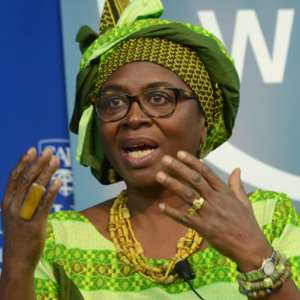
In the constellation of African intellectuals and global diplomats, Professor Abena Pokua Adompim Busia radiates with enduring brilliance. Her life’s work—spanning poetry, scholarship, and diplomacy—has bridged continents and generations, chronicling the African experience while shaping its global reception. Daughter of Ghana’s former Prime Minister, Dr. Kofi Abrefa Busia, she inherited a legacy of leadership. But it is through her own voice—resolute, lyrical, and visionary—that she has become a cultural envoy of rare distinction.
I first encountered her work during my tenure as Director of the Martin Luther King Jr. Information Resource Centre at the U.S. Embassy in Accra. Collaborating with Nick Robertson, then Director of USIS, we curated public programs that explored civil rights, African literature, and diasporic identity. Professor Busia’s presence in those spaces was transformative. Her poetry readings and lectures didn’t merely inform—they stirred something deeper. She spoke not only to the diaspora, but from within it, offering language to the longings and triumphs of displacement and return.
Her poetry collections—Testimonies of Exile and Traces of a Life—are lyrical meditations on memory, identity, and survival. I recall one reading at our Centre, where she stood before a room of young Ghanaian creatives. Her words flowed not just as stanzas, but as summons. The silence that followed was reverent, the applause reflective of a collective awakening. Her poems dignified exile, transforming it from a condition into a calling.
Beyond poetry, Professor Busia’s academic contributions are monumental. At Rutgers University, where she served as Professor of English and Chair of Women’s and Gender Studies, she mentored generations of scholars and advanced discourse on African and African American literature. Her co-leadership of the Women Writing Africa project—a four-volume anthology published between 2002 and 2008—was a landmark act of archival justice. It restored African women’s voices to the historical record, offering a textured and authentic narrative of the continent’s cultural legacy.
Her transition into diplomacy in 2017, as Ghana’s Ambassador to Brazil, was not a departure from her literary path—it was a continuation. With concurrent accreditation to twelve South American nations, she brought to diplomacy the same intentionality she brought to poetry: listening deeply, speaking precisely, and centering the human story. Her cultural fluency and diasporic grounding positioned her as a formidable advocate for South-South cooperation, feminist diplomacy, and cultural exchange.
Even now, in her early seventies, Professor Busia remains a vital force. She was recently honored at the 2025 All-African Women Poetry Festival in Accra for her lifelong contributions to literature and cultural memory. As Board Chair of AWDF-USA, she champions feminist philanthropy and intergenerational mentorship. Her public reflections continue to emphasize the importance of storytelling, heritage, and ethical leadership in shaping just societies.
She stands among a distinguished lineage of Ghanaian changemakers—Ama Ata Aidoo, Efua Sutherland, Esther Afua Ocloo, Kofi Annan, Kwame Nkrumah—who fused intellect with activism, insisting that culture is not ornamental but foundational to justice.
For me, her legacy is personal. She reminded us—through verse and voice—that exile is not merely a geographic condition but a spiritual reckoning. And that return is not always a homecoming, but a restoration. In her words and in her walk, she models the kind of leadership our world needs: principled, poetic, and profoundly human.
✍️ Author Bio
Atitso is a civic educator, strategic communicator, and advocate for systemic reform in governance, healthcare equity, and environmental restoration in Ghana. With a background in stakeholder engagement and interfaith education, he blends intellectual rigor with cultural insight to craft impactful public messages, from executive briefs to visual campaigns. His professional journey includes directing public programming at the U.S. Embassy’s Martin Luther King Jr. Information Resource Centre, where he facilitated transformative dialogues with figures such as Professor Abena Busia. He is dedicated to empowering citizens through storytelling, historical memory, and ethical leadership.
Retired Senior Citizen
Teshie-Nungua
[email protected]


